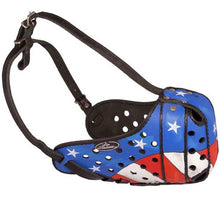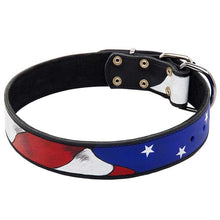The Benefits of Fish Oil For Your Dog

If you only give your dog one nutritional supplement, you should consider salmon oil. Salmon oil is packed with nutrients that help support the skin and coat, reduce painful inflammation, and protect cardiovascular health.
Why is Salmon Oil So Good for Dogs?
Salmon oil is also a rich source of Omega 3 fats, otherwise known as the healthy fats. Omega 3’s are essential fatty acids that help protect health and prevent chronic disease and are vital to your dog’s health and wellbeing.
Salmon oil contains eicosapentaenoic acid (EPA) and docosahexaenoic acid (DHA). Two nutritional powerhouses that are known to provide many health benefits for canines. EPA and DHA are not manufactured by the body, meaning dogs must obtain them through diet and/or supplementation.
The EPA and DHA found in salmon oil helps promote healthy aging throughout life by:
- Supporting the immune system
- Reducing allergic reactions
- Preventing dry skin and coat
- Protecting heart health
- Reducing inflammation
- Protecting eyesight
- Improving cognitive function
- Reducing the risk of dementia
- Supporting kidney health
- Reducing arthritis pain
- Providing a good source of vitamins, minerals, vitamin B12, and potassium
Why Do Dogs Need Salmon Oil?
Commercial diets can cause inflammation in dogs and salmon oil helps counter balance some of the damage done by feeding them processed kibble all their lives. And, since dogs can’t make their own DHA or EPA, they need it provided to them to keep them healthy. Salmon oil can help prevent problematic conditions, such as:
- Allergies
- Infections
- Arthritis
- Heart disease
- Cancer
- Diabetes
When Should I Start Giving My Dog Salmon Oil?
It’s never too early or late to start supplementing salmon oil. However, as with all supplements, it’s a good idea to talk to your vet first. Especially if you have a puppy or a dog taking medications. Although salmon oil is considered safe, some dogs with certain health conditions, such as blood clotting disorders, should avoid salmon oil unless prescribed by a vet. Dogs of all ages can benefit from salmon oil.
Puppies
In puppies, salmon oil can help growing pups stay healthy by strengthening the immune system and helping to fight off infections. Salmon oil can also help brain development and improve their learning abilities. Talk to your vet about dosing before giving a puppy salmon oil and start slow as it can cause digestive upset in their sensitive bellies.
Adults
Adult dogs can also benefit from salmon oil. As the dog begins the all too fast aging process, the DHA and EPA in salmon oil can help keep them healthy, support healing, reduce disease causing inflammation, reduce aches and pain, and help protect their health into their senior years.
Seniors
Senior dogs need the nutritional support salmon oil can provide. By the time your dog reaches their senior years, many have some form of arthritis and other health problems. The inflammatory benefits of salmon oil can help fight the pain of arthritis so that your dog can stay active longer. It can also help protect their fragile immune system and protect them from cognitive decline.
How Can I Tell If My Dog Needs Omega 3’s?
If you feed a processed diet, chances are your dog is in need of the DHA and EPA supplementation found in salmon oil. EPA and DHA must be provided to canines to help keep them healthy since they don’t manufacture it themselves.
Even raw feeders regularly supplement salmon oil to ensure their pups are getting the right balance of nutrients and provide extra nutritional support.
Some common symptoms of deficiency include:
- Dry skin and coat
- Itchiness
- Obesity
- Poor healing
- Chronic ear infections
- Hot spots
- Lack of energy, weakness
How Do I Start Feeding Salmon Oil?
Once you decide to start your dog on a salmon oil supplement, be prepared to introduce the oil slowly as you would with any new food. Salmon oil can cause stomach upset and diarrhea in some dogs when they’re first introduced to it. To ensure the best experience for you and your dog, feed a micro serving and increase daily as your dog tolerates it until reaching the correct dose by weight.
As with any supplement, too high of a dose can have harmful side effects and salmon oil is no exception. Don’t overfeed the recommended amount of salmon oil, unless prescribed by your vet. Overdose of salmon oil can result in diarrhea, vomiting, pancreatitis, delayed wound healing, increased itchiness, bleeding, seizures, and lethargy.
When choosing a salmon oil, be sure to choose a 100% pure wild-caught salmon oil that is free of any other ingredients, metals, and toxins that can build up in fish fat. The salmon oil should be free of fillers, additives, and preservatives and sustainably made, such as this Wild Alaskan Salmon Oil.
You really can’t go wrong when adding salmon oil to your dog’s diet. Even picky eaters agree that salmon oil is a yummy food topper that makes them feel good. Please feel free to pass along this info to your family and friends.

























